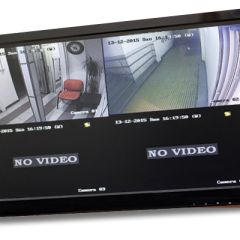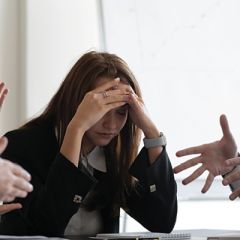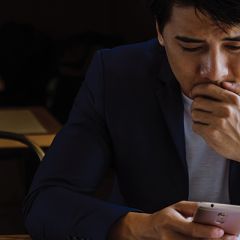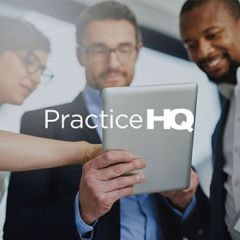In his May Illinois Bar Journal article, “’Searching’ for an Answer,” Christian Ketter recounts a decision from the U.S. Court of Appeals for the Seventh Circuit concerning whether evidence discovered from pressing the remote key fob of a defendant’s car should be suppressed. Ketter assesses this case, as well as others, ruling that using a key fob to locate a vehicle is not a search, and is more like a binary “on-the-spot” field or dog-sniff test that only detects the presence or absence of a thing.
Illinois Bar Journal
-
May 20, 2024 | Practice News

-
May 13, 2024 | Practice News

In Ira Helfgot’s May Illinois Bar Journal article, “Compelling the Unwilling,” Helfgot describes strategies for collecting from “unwilling debtors”—those who have the ability to pay a debt, but choose not to.
-
May 6, 2024 | Practice News

Depending on the case, very little matches the power of video evidence. And, woe to anyone responsible for misplaced, destroyed, and inaccessible videos, for which discovery violations are possible. But what about video evidence that was never in the possession of law enforcement or the prosecution?
-
May 2, 2024 | Practice News

The Illinois Bar Journal’s May cover story, “Remote Opportunities,” concerns two recent publications that underscore how remote appearances—allowed since May 2020 under Illinois Supreme Court Rule 45—are increasing access to justice throughout Illinois as the practice continues beyond the COVID-19 pandemic.
-
April 25, 2024 | Practice News | ISBA News

The Illinois State Bar Association invites Young Lawyers Division (YLD) attorney members to establish yourselves as experts in your practice area and compete for your share of $5,000 in prize money by entering the Annual Lincoln Award Legal Writing Contest.
Submissions should be useful, practical articles on topics important to practicing lawyers. Submissions will be considered for publication in the Illinois Bar Journal.
-
April 22, 2024 | Practice News

Shutting down talking objections and the coaching of deponents are more easily done in person than during remote depositions. But, as Andrew N. Jovanovic states in his April 2024 Illinois Bar Journal article, “Enough With the Talking Objections,” remote interactions have a way of bringing out bad behaviors that are usually kept in check during in-person encounters.
1 comment (Most recent April 25, 2024) -
April 15, 2024 | Practice News

For much of the history of the Illinois judicial system, personal service has been plaintiffs’ preferred method of serving respondents and defendants. This method has proven to work well in most cases. But what about defendants who actively evade service or have even left the state, asks Jessica A. Pullen in her April Illinois Bar Journal article, “Social Service.”
-
April 9, 2024 | Practice News

Now that the Illinois Supreme Court in Estate of Coffman determined that the fiduciary relationship between the principal and their agent begins at the time the power of attorney is signed, attorneys should be cautious when advising clients in naming agents under property powers of attorney, explains Robert S. Held in his April Illinois Bar Journal article, “Instant Karma.”
-
April 1, 2024 | Practice News

Log onto ISBA Central and search for “banks” and “POA.” Results will be populated with many discussions of attorneys who are problem-solving a bank’s rejection of a client’s power of attorney. As noted in the Illinois Bar Journal’s April cover story, “Behind the Curtain,” one prevailing theme of these discussions is that solving this problem is harder than it should be. In response to these and other conversations, the ISBA’s Trusts and Estates Section sponsored a CLE program last November to tackle the sometimes-fraught relationship between clients who want to protect and manage the assets of loved ones and banks standing in the way.
-
March 25, 2024 | Practice News

It’s been a few years since in-person, out-of-town meetings and events have returned to their pre-COVID-19 form. Still, many of us may be a little rusty when planning for out-of-town trips, whether for a meeting, conference, or other work-related event. Frequent on-the-go travelers Jeffrey S. Krause and Jeffrey R. Schoenberger from Affinity Consulting Group recently reexamined their work-travel routines and created a list of tips they’ve accumulated from experience as they resumed their work-away-from-home lives. Just adopting one or two of their tips on your next work-related business outing may lead to smoother sailing.

